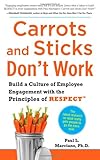
I’m working on a new Linked-in profile and wanted to get your thoughts on it. I’m sure others have similar experience in the decline of corporate culture to share here, too. If I wanted to stay employed in the current corporate climate, I’d update my profile as follows to make it fit what corporations are really looking for:
My prospective Linked-in profile, targeted to the declining corporate culture in America:
Summary: David has twenty-five years of experience working as a general manager for jackasses who couldn’t care less about their employees and has earned the monicker “Proctologist of Political Dysfunction.” David is currently seeking employment with another severely dysfunctional corporation.
Most recent employment: Mismanagement Trainer. Two years direct experience as general manager, most recently serving under a delusional board of self-congratulating idiots. During that time, David administered sensitivity training on behalf of the board by helping staff become less sensitive to the hostile working environment created by the board’s endless belief that staff costs too much. Aided the board in boosting staff morale by convincing all staff they really aren’t worth much anyway so no reason to feel bad about being underpaid. Counseled the board on restructuring as it sought to fire highly qualified people who were near retirement in order to replace them with morons who have to be willing to work for less now that they’re out of prison. This work directly saved the company thousands of dollars by eliminating the high cost of skilled human resources who had a broad knowledge of the company’s unique facility operations, thus allowing new employees to creatively guess at how things worked, thereby expanding employee creativity.
Benefits in hiring David: David brings broad experience in observing how companies can successfully lie to their shareholders: Convince shareholders that the meat lost by cutting fat out of the corporation was riddled with parasites anyway. While your company becomes less robust, shareholders will appreciate the dividends from cost savings that accrue immediately to their pocketbooks before they sell off. Anorexically streamlined companies will find themselves better adapted to an environment where owners who are fatigued from the high costs of quality investment can reap a savings windfall from downgraded expectations.
The backstory on my experience with dysfunctional corporate culture:
That’s what I was tasked with doing by a new micro-managing, highly dysfunctional board of directors that replaced an already semi-dysfunctional board in a hostile takeover. Fortunately, I was ready for semi-retirement anyway, so I refused to cooperate as the new board’s henchman, which would have been to live to my own human disgrace. Instead, I moved on as a happier person to lesser-paying things, including spending more time on this blog.
Thus, I became one of the Great Uncounted in the ranks of the underemployed because I refused to go along with the management game under these increasingly common management goals. I’d rather risk my own career collapse than treat the employees who labor under my management so disgracefully.
The irony was that I had often fired employees who were simply dead wood or dishonest or a known risk. The board was fully aware that I had no problem in doing that; but that just wasn’t enough. Now, they wanted me to cut good-quality, loyal employees to save more money, and when I explained that they wouldn’t save any money by cutting into the muscle of the organization, they simply didn’t want to hear it. I could participate in the new agenda or be terminated. At the same time, they asked me to organize a barbecue where they could attend to celebrate the staff and assure them of how much they appreciated them in order to boost staff morale during the cuts and direct board micromanagement of staff.
The new general manager and new board has, in the two years since, seen 90% turnover in the corporation’s employees and has seen the major maintenance of its facilities stall as the board makes endless excuses to its angry members as to why it is no longer able to get the job done on budget … or done at all. The management company they contracted with to replace me and the company accountant who worked under my management was tossed out on its ear in a near-unanimous member revolt when their contract expired a year later.
It turned out that losing all of their best help due to micromanagement and penny-pinching didn’t save them a dime in the long run. They had to hire replacement employees at much higher rates because they discovered no one worth hiring (or worth contracting with) was willing to work for the low wages they paid the previous employees (wages that I had been working successfully, albeit painstakingly, to get the previous board to raise for exactly those reasons). Many of their best employees fled with the best of the best leaving as soon as I was gone, which left the board severely disabled and bickering among themselves and the members of the organization.
To this day (two years later), projects that were slated to begin immediately sit undone because they cut deep into the muscle and skills of their human resources and to their own surprise found themselves paralyzed. Yet, has the dysfunctional board learned anything? Not from what I hear from employees who have moved on because they grew sick of the chaos. The board members, who were nothing but hatchet men like the little cartoon above, still hold their positions for the most part and endlessly attempt to justify themselves to the members of the organization, which I suppose they will do until the next coup of meat-cutters replaces them because theirs is a membership obsessed with cutting costs … at all cost.
Productivity decline due to dysfunctional corporate culture is one of America’s worst problems
My experience above is just a microcosm example from a small corporation of what is happening in major corporations throughout America as they try to increase earnings without doing anything other than cutting costs.
Idiot savant and former Fed chair, Alan Greenspan, worries that productivity decline is America’s most threatening problem. Why should he be surprised that productivity throughout the US economy is significantly down when most corporations have maintained earnings through years of penny-pinching during the Great Recession, rather than by empowering their human resources with capital improvements, training, etc.? Board members have sought to stuff their own pockets by draining their companies dry through cost-cutting measures that improve immediate earnings but diminish the company’s longterm strengths. Years of cuts that were eventually replaced with cheaper labor have also diminished the middle-class workers who ultimately constitute the market for their products.
My experience is just one personal glimpse inside of a greedy mindset that is endemic right now. When most board members in America are rewarding themselves and other stockholders with dividends made affordable by cutting labor and by taking out corporate loans to pad their own pockets with stock buybacks, you can only expect productivity to drop as no money goes into development.
Corporations make improvements to earnings with cuts in human resources that improve the bottom line this year but that will be more expensive to replace in later years if the company actually wants to grow and expand its market. You can expect to see the entire nation dwindle over time into economic decline in this kind of corporate culture where companies become less robust and fail to build a future for themselves just to realize easy money now. Furthermore, the widespread adoption of such practices has diminished the middle class by moving all money toward the top, so you can only expect the market to diminish over time as well. This is how greed ultimately contains the seeds of its own destruction: by holding too much of the money tightly at the top (even leveraging the company just to put more money up there), the top 10% strangle their own markets and eventually see their own incomes diminish.
We are nearing the endpoint of this game where the masses of citizens that once formed the middle class are increasingly edging toward revolt. The next step for the rich is to spend their amassed money building stronger gates and higher walls to protect themselves. Politically, they are just starting to see the formation of that end game now.
Stockholders and their elected boards are doing what makes the most money for themselves in the short-term by sucking the life energy out of the company. They have no intention of investing for the long term, so they don’t care. Corporate loans should only be taken out to develop new markets or improve the equipment employees have to work with or make other improvements that boost how much employees can accomplish (boost productivity) and what the company can earn, but never to benefit stockholders by paying for dividends or share buybacks.
Yet, that has become standard procedure. Using corporate loans for stock buybacks, enables the major stockholders to easily move their money to another company on the company dime by having the first company buy them out while the getting is still good. Then they can start sucking out the next company’s life energy.
This kind of short-sighted profiteering has come to dominate in part because of Alan Greenspan’s protégés who have crafted a new world order by flooding the top of society with free money. Investors no longer have to care about whether a company’s profile is looking better positioned for a solid future because no one is paying attention to company profiles. They’re paying attention to what the other speculators are doing, and many of the other speculators are banks who have all that free money to park.
So, nearly all investors are solely speculating on what the central bank will do next. It is now the banks that move the markets en mass because that is the major money in play, so the old-fashion look at capital improvements, market innovation, productivity gains, expansion of market share, etc., has become less relevant.
The cheap-and-easy money created by central banks’ low interest policies also enables board members to access cheap corporate loans that they can use to buy back their stocks after they’ve sucked their corporations dry. The company takes out a huge line of credit and uses that money buy out select shareholders who then move on to deplete the next company.
There is, of course, much more involved in this cycle of rapacious greed, such as the obvious cronyism in politics that protects the job choppers at every turn and assures they can continue their pillaging of America. The robot world of high-frequency traders also assures a short-term mindset that never has the longterm best interest of the company in mind, much less any interest in the employees. We could stop that by legislation or just by Wall Street casino rules, but we won’t because it’s working so well for the rich, who own the robots, which make large speculative plays in nanoseconds based algorithms that certainly have nothing to do with capital improvements or the knowledge gains of human resources.
Mining out all the corporation’s energy to richly pay board members and CEOs who don’t deserve anything based on company market growth, real earnings improvement or productivity gains is ultimately not a form of sustainable economics. It’s a temporary and delusional world of wealth created for a few by Alan Greenspan’s best friends. It’s also a guarantee of gradual economic collapse for the entire nation as the great middle class takes all the hits while the top 1% get all the unearned benefits. Corporations are essentially cannibalizing themselves as the rich feast on the corporation’s muscle.
Please leave record of your own experiences with the decline of corporate culture in the comments section as it could be the most interesting part of this article:
Further reading on the good and bad in corporate culture:
I hadn’t even hit the “publish” button on this article when a reader posted a link to an article on the topic of the moral decline of corporate culture, which I also recommend (particularly the video made at the time of the repeal of Glass-Steagall):
Pam Martens’ warning to the Federal Reserve on revocation of Glass-Steagall
And another article by Pam Martens on the topic of “the insidiously corrupt financial system in the United States known as Wall Street”:
Here’s Why Americans Are Mad as Hell at Wall Street and Washington
It’s a system that now operates as an institutionalized wealth transfer mechanism that is hollowing out the middle class, leaving one of every five children in our nation living in poverty, while funneling the plunder to the top one-tenth of one percent.
Tens of millions of Americans clearly understand that an entrenched system of corruption such as this, perpetuated through a revolving door between Wall Street and Washington, while enshrined by a political campaign finance system that recycles a portion of the plunder to ensure greater plunders, will inevitably leave the nation’s economy in tatters — again. That’s because systemic corruption and legalized bribery within the financial arteries of the nation can only create grossly perverse economic outcomes.
For an excellent article on how productivity gains in the past failed to help the middle class because they all accrued to the rich and on how the economic support of the middle class to the economy has deteriorated as gains all accrued to the rich, I recommend this article that I read on David Stockman’s Contra Corner:
“Here’s Why Wages Have Stagnated——–And Will Continue to Stagnate”









